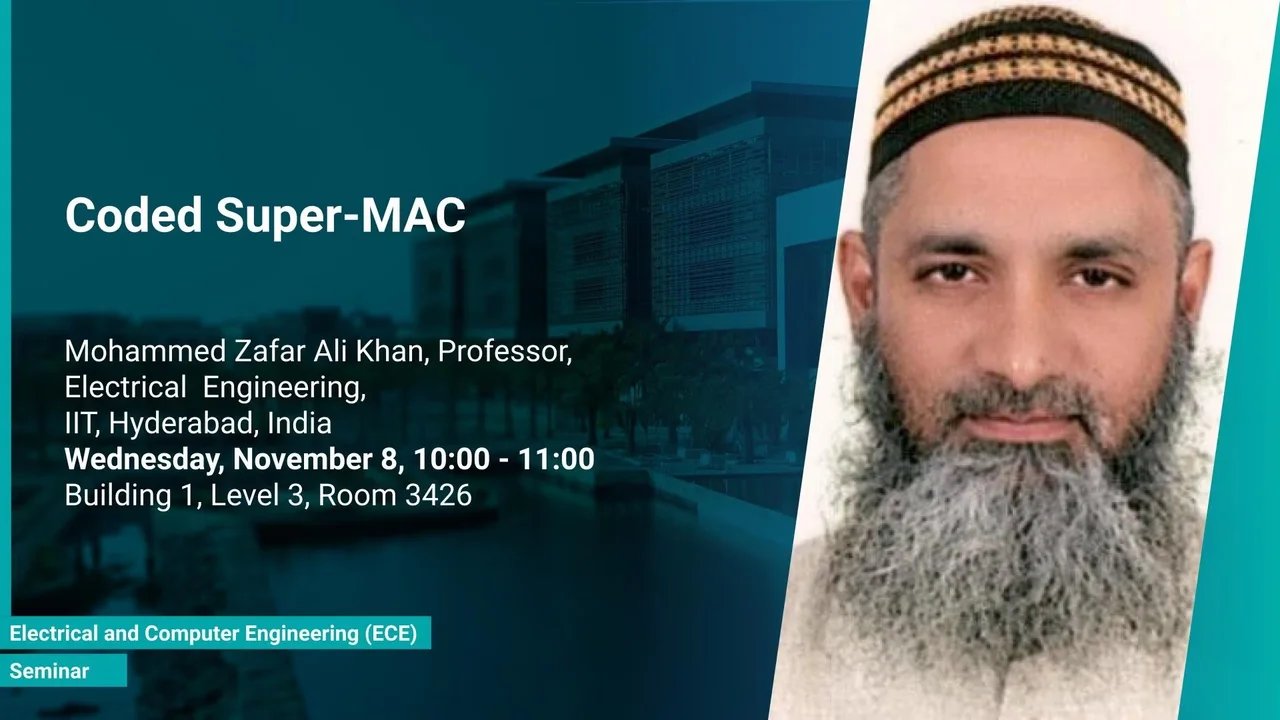
Coded Super-MAC
- Mohammed Zafar Ali Khan
B1 L3 R3426
In this talk, we present a solution to the challenge of simultaneously enhancing the reliability and throughput of multiple radio access technologies (multi-RAT).
Overview
Abstract
In this talk, we present a solution to the challenge of simultaneously enhancing the reliability and throughput of multiple radio access technologies (multi-RAT). First, we introduce coding at the transmit L2 layer just above the MAC layer, hence the name "Coded Super-MAC". Correspondingly, we develop a low-complexity decoding technique at the L2 layer of the receiver. Incidentally, this decoding technique is "Universal" because it can decode all codes and further preserves diversity.
Theoretical analysis reveals that the diversity order of Coded Super-MAC is double that of conventional offloading and aggregation methods, translating into a substantial boost in reliability. Simulations conducted for various dual-RAT scenarios, like the NR-WiFi scenario, demonstrate superior reliability and throughput compared to standard offloading and aggregation techniques. A slight increase in Block Error Rate (BLER) is seen as compared with duplication; the substantial gain in throughput more than compensates for this.
Brief Biography
Mohammed Zafar Ali Khan was born in Hyderabad, India. He received his B.E. degree in electronics and communication from Osmania University, Hyderabad, India, and the M.Tech. Degree in electrical engineering from the Indian Institute of Technology (IIT), Delhi, and a Ph.D. degree in electrical communication engineering from the Indian Institute of Science (IISc), Bangalore, in 1996, 1998, and 2003, respectively. He was a design engineer with Sasken, Bangalore, in 1999, a senior design
engineer with Silica Semiconductors, Bangalore, from 2003 to 2005, and a Senior Member of Technical Staff at Hellosoft, India, in 2005. He is currently with IIT, Hyderabad as a Professor where he was the founding Head of The Department of Electrical Engineering. His research interests are in coded modulation, space–time coding, and signal processing for wireless communications.
Prof. Khan has been active in the Physical layer design of emerging wireless communication technologies like MIMO, cognitive Radio, and mmWaves. The WiMAX standard has adapted space-time codes designed by him.